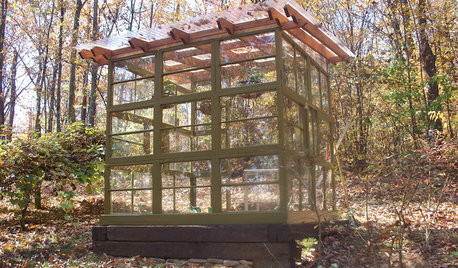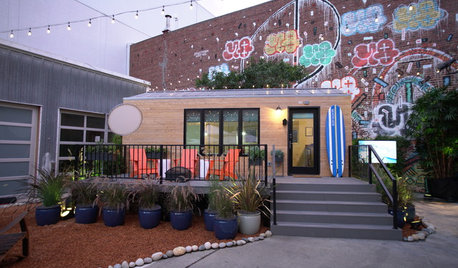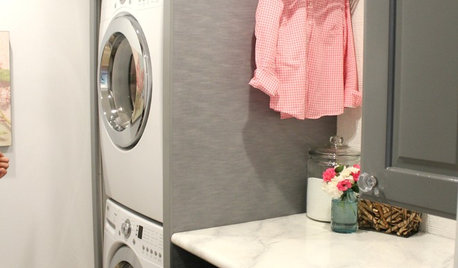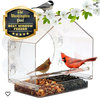help with resources for Gardening with autistic kiddos
KCtomato1
21 years ago
Related Stories

HOUSEKEEPINGWhen You Need Real Housekeeping Help
Which is scarier, Lifetime's 'Devious Maids' show or that area behind the toilet? If the toilet wins, you'll need these tips
Full Story
GARDENING AND LANDSCAPINGSee a Family Greenhouse Grown From Scraps
Can-do resourcefulness and less than $400 lead to a new 8- by 8-foot home for plants on a Tennessee family's property
Full Story
HOME OFFICESQuiet, Please! How to Cut Noise Pollution at Home
Leaf blowers, trucks or noisy neighbors driving you berserk? These sound-reduction strategies can help you hush things up
Full Story
You Said It: Hot-Button Issues Fired Up the Comments This Week
Dust, window coverings, contemporary designs and more are inspiring lively conversations on Houzz
Full Story
LIFEHow to Build Your Housekeeping Muscle
Train yourself to clean and organize until the routine becomes second nature with this step-by-step approach
Full Story
HOME TECHA Vision of the Future for the Smart Home
Intel, a smart-home platform developer, offers a peek into the tech firm's experimental ‘living lab’
Full Story
ORGANIZINGChecklists for a Well-Stocked Home
Thank-you notes, first-aid kit, clear glass vases ... It’s easy to go with the flow when you’ve got the items you need at hand
Full Story
DECORATING GUIDESCelebrating the Great American Quilt
They speak of family, history and beauty. Is it any wonder quilts transcend design styles?
Full Story
COMMUNITYGet a Bird's-Eye View of America's Housing Patterns
See the big picture of how suburban developments are changing the country's landscape, with aerial photos and ideas for the future
Full Story
LAUNDRY ROOMSSee an Amazing $400 Laundry Room Remodel for a Family of 8
Budget shopping and DIY spirit create folding space, smart storage and better organization for a couple and their 6 kids
Full Story






petaloid
periwinklez3b
Related Professionals
Redondo Beach Landscape Architects & Landscape Designers · Anderson Landscape Contractors · Conroe Landscape Contractors · Golden Gate Landscape Contractors · Hilo Landscape Contractors · Lakeville Landscape Contractors · Lemoore Landscape Contractors · North Richland Hills Landscape Contractors · Ponte Vedra Beach Landscape Contractors · Round Lake Landscape Contractors · Sugar Hill Landscape Contractors · Waipahu Landscape Contractors · Cedar Park Siding & Exteriors · Liberty Siding & Exteriors · Panama City Siding & ExteriorsKCtomato1Original Author
lynda_ne
katybird_PA
Amunhotep4th
KCtomato1Original Author